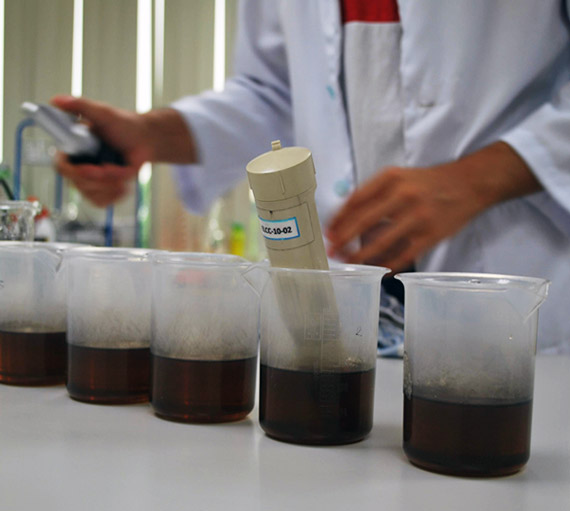CARBO SOLUTIONS SERVICES
Laboratory Audit
Laboratory Audit
In the current highly competitive economic environment, there is an increasing demand for manufacturers and process organizations to establish competent control laboratories of excellence. In order to achieve this management should implement quality procedures for the improvement of the laboratory. A laboratory audit ensures that the laboratory has quality systems in place, follows good laboratory practices, and generates data of integrity and quality.
It is strongly recommended that a laboratory be conducted annually by an external auditor to assure that the test results generated are accurate and reliable. An external audit will also provide the lab with knowledge of how well it follows its own procedures and the skills and the competence of the lab workers.
We recommend an annual lab audit be conducted by our experienced senior lab technician. This would be invaluable to strive for excellence.

Preparation
- First, we define the scope of the audit. The scope of the laboratory quality audit is defined as identifying non-conformance to standards or specifications and to make recommendations wherever possible.
- Based on the above, we determine the audit team resources be used, what special skills/knowledge is needed among the team members to efficiently and effectively handle the scope of the audit.
- Before we commence, we need to identify the competence elements of the laboratory viz Personnel, Environment, Instrumentation, and Test Methods. The laboratory quality system may be unique however the audit team must evaluate the auditee’s quality system against a standard even if it’s an internal standard.
- Our auditors develop written checklists of the data needs before the audit. This technique provides protection from the checklist being an auditor’s wish list and reduces the chance of leaving anything out
Actual work to be done
- Checking of instruments against certified standards or standard procedures
- Checking standard operating procedures for errors.
- Evaluating the analytical technique
- Evaluating sampling and general sample handling
- Evaluating results and calculations
- Training lab workers in areas that need attention
